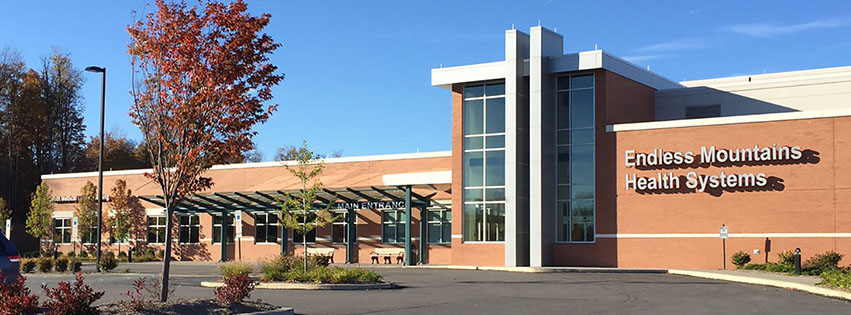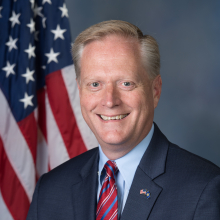Submitted Article
Congressman Fred Keller (PA-12) today reintroduced the Reviewing Urban and Rural Adjustments to Level Hospital Expenses and Lopsided Payments Act, otherwise known as the RURAL HELP Act in the 117th Congress with original co-sponsors Mike Kelly (PA-16), Glenn “GT” Thompson (PA-15), Morgan Griffith (VA-09), Frank Lucas (OK-03), and Greg Steube (FL-17).
The legislation aims to bring parity to inpatient Medicare reimbursement payments between rural and urban hospitals to help struggling rural hospitals survive by requiring the Centers for Medicare and Medicaid Services (CMS) to determine the precise level of systematic disparity that exists between urban and rural hospital payments in the annual Inpatient Prospective Payment System. The legislation also specifies that once the evaluation is completed, the Secretary shall make an adjustment to CMS payment policies to make up for the identified disparity.
Congressman Fred Keller (R-PA):
“Quality care in rural America should be affordable for those who need it and be cost-effective for the rural hospitals administering it. Unfortunately, rural hospitals in Pennsylvania’s 12th District and across the nation are constantly faced with the risk of closure from things like lopsided Medicare reimbursement rates and trying to make ends meet in a rural setting. That’s why our team reintroduced the RURAL HELP Act so we can systemically reevaluate declining Medicare payments and ensure rural hospitals can continue their important service to our communities.”
Rural Hospital Coalition:
“America’s rural health infrastructure is frayed like never before. Unfortunately, systemic Medicare payment inequities are further straining this safety net. The RURAL HELP Act would require CMS to immediately examine and fix systemic payment inequities burdening our rural hospitals.”
Lisa Davis, Director of the Pennsylvania Office of Rural Health and Outreach, Associate Professor of Health Policy and Administration at Penn State:
“Although Pennsylvania has not seen the large numbers of closures of small rural hospitals as has been experienced in other states, our state’s hospitals continue to face financial, workforce, and other challenges. Medicare payment parity is essential since rural facilities serve large numbers of older and disabled persons and do not have the economies of scale to offset losses from public payers.”
Andy Carter, President and CEO, The Hospital and Healthsystem Association of Pennsylvania:
“Pennsylvania is home to a diverse swath of hospitals, all united in the mission to care for everyone who needs it, regardless of their health status, geography, or insurance status.
“HAP thanks Congressman Keller for leading the charge to bolster access to care in rural communities. The RURAL HELP Act will play a key role in ensuring that rural hospitals have the resources they need so that everyone can access the treatment and services they need to get and stay healthy.”
Alan Morgan, Chief Executive Officer of the National Rural Health Association:
“NRHA applauds Congressman Keller for reintroducing the Reviewing Urban and Rural Adjustments to Level Hospital Expenses and Lopsided Payments (RURAL HELP) Act which aims to bring parity to inpatient Medicare reimbursement payments between rural and urban hospitals. Since 2010, we have seen 136 rural hospitals close their doors. If passed, the RURAL HELP Act would help vulnerable hospitals at risk of closure.”
BACKGROUND:
In 2020, Congressman Keller led a letter to CMS Administrator Seema Verma asking her agency to re-evaluate the Medicare Severity Diagnosis Related Group (MS-DRG) classification system in the annually updated Medicare Inpatient Prospective Payment System (IPPS)—the mechanism that determines Medicare reimbursement for inpatient services at most hospitals.
The MS-DRG recalibrations have negatively impacted these types of rural hospitals over the last several years and this re-evaluation is a critical component to ensuring rural hospitals receive the appropriate Medicare reimbursement amount.
According to the National Rural Health Association, over just the last ten years, 135 rural hospitals have closed with another 453 at risk for closure.
As it relates to Pennsylvania’s 12th Congressional District, the RURAL HELP Act will help keep hospitals open by providing reimbursement parity with urban or suburban hospitals:
Robert Packer Hospital in Sayre, Bradford County
Barnes Kasson Hospital, Susquehanna County
Tyler Memorial Hospital, Wyoming County
Evangelical Community Hospital in Lewisburg, Union County
Williamsport Regional Medical Center in Williamsport, Lycoming County
Geisinger-Lewistown Hospital in Lewistown, Mifflin County
Lock Haven Hospital in Lock Haven, Clinton County
Mount Nittany Medical Center in State College, Centre County



